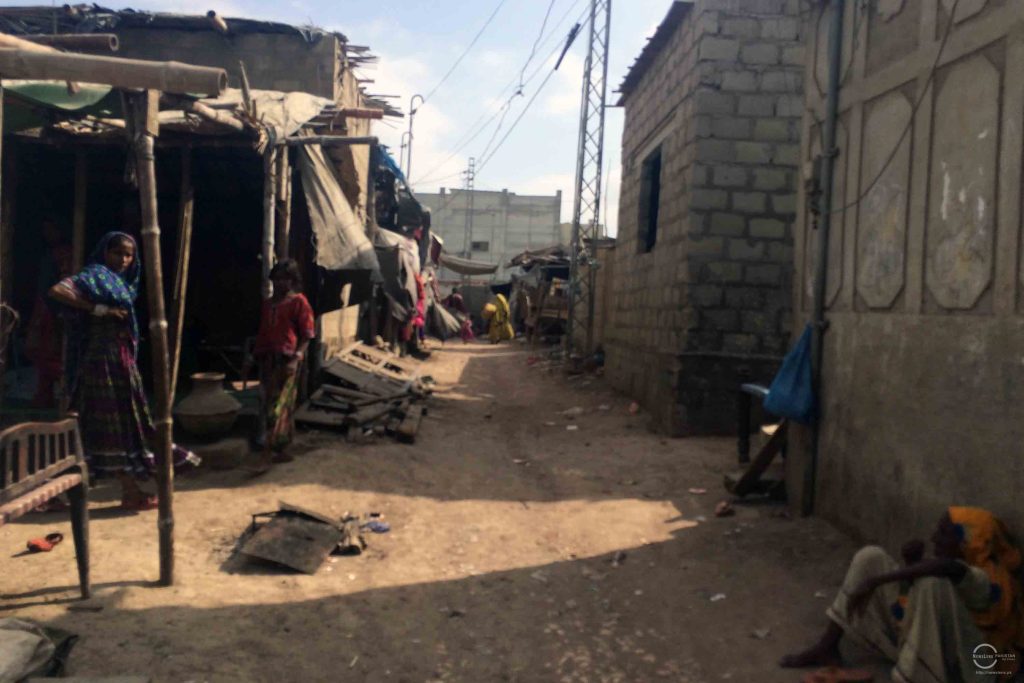
Sanjesh S. Dhanja, 30, a young political activist from Hindu community, was disappointed when he knew that he could not participate in upcoming local government polls in the city.
“I had been preparing to contest polls for last two years and I was confident that residents of my neighborhood, Chota Gate, will vote me,” said Dhanja, who also heads Pakistan Hindu Seva (PHS), a Karachi-based welfare organization working for betterment of Hindu community. “But I was saddened to know that we, non-Muslims, cannot take part in local government polls directly this time”.
Local government polls in Sindh province will be held in three phases and in first phase, election will be held in eight districts of Northern Sindh on October 31. In third and last phase, polls will be held on December 3.
In last two local government polls held in 2001 and 2005 in Sindh province, voters – both Muslims and non-Muslims – directly elected one non-Muslim councilor on their single reserved seat at nieghbourhood level.
But in new local government system, there will be a chairperson, vice-chairperson and four general councilors from each union councils (in rural areas) and union committee (in urban areas). This time, voters will only caste two votes in each union committee or council – for electing these six people, who, after winning, will will elect one non-Muslim nominated by their respective political party on the reserved seat for minorities, along with other reserved seats for women, youth and labourer.
On August 12, the Sindh Assembly passed ‘The Sindh Local Government (Third Amendment) Bill 2015’, in which, along with other amendments, the new rules for voting for directly electing only chairperson, vice-person and four general councilors were introduced.
Comparatively, Sindh province has the larger population of non-Muslims and Hindus, Ahmadis and Christians are in majority there. Also, Sikhs and Parsis in small numbers also live there. Although there is no official population statistic available because no census conducted in the country since 1998, Hindus consists of 5.5 per cent of the country’s total population and 93.33 percent of them live in Sindh, Hindu rights bodies, such as the PHS, claim.
Hindus constitute the highest number of non-Muslims’ votes in the country with 1.4 million registered voters, followed by 1.24 million Christians, states an Express Tribune’s April 8, 2013 report citing the statistics of the Election Commission of Pakistan (ECP). There are some 115,966 registered Ahmadi voters, 5,934 Sikh, 3,650 Parsi, 1,452 Buddhist and 809 Jewish voters registered in Pakistan, the report added.
Michael Javed, a Christian by faith and a former member of Sindh Assembly who was elected four times from Karachi through directly election, said that non-Muslim activists, who had already struggling for dual voting rights, has even not allowed this time to field its own candidate in local government polls.
Till 1999 when former military chief Pervez Musharaf overthrow the Nawaz Shari’s elected government, non-Muslims had dual voting rights in general elections, allowing them to not only vote to Muslim candidates on general seats but also for their own non-Muslim candidate.
But now in general elections, non-Muslims candidate cannot be elected through direct voting. “Now Muslim leadership of mainstream political parties select a non-Muslim on the reserved seats for minorities, depriving non-Muslims of entire country from exercising their voting rights to elect their own candidate,” Javed told Newslens. In addition, right to contest polls at neighborhood level in local government polls in Sindh province have also been snatched, he said.
After abolishment of the separate electorate system, now non-Muslim individuals have been compelled to join Muslim-dominated political parties, and even Islamist parties, only to get ticket to reserved seats, be it for local government for general elections, he said.
Non-Muslim rights activists said activists from their communities will now ask Muslim-dominated political parties to issue them tickets for councilor on reserved seats. “Like the general polls, wealthy and influential non-Muslims will purchase tickets for theses slots from these parties, who will not consider resolving the issues for resolving the issues of non-Muslim communities and their neighborhoods.
In Jogi Morr, a Hindu-populated nieghourbood in Karachi’s suburban area, around 800 families live in impoverished conditions. The residents do not have access to safe drinking water and are deprived of a sewerage system, schools, and dispensaries.
Like Jogi Morr, each and every neighborhood inhabiting non-Muslim communities have been facing same problems, said Dhanja. “It is because we did not directly elect our own community member to send them parliament and city council to resolve our civic issues and non-Muslims parliamentarians got party ticket on the basis of wealth, instead of votes from the communities”, he told Newslens.
Sardar Ramesh Singh, head of Pakistan Sikh Council, a country-wide Sikh rights body, said his community had decided to boycott the upcoming local government polls in the province.
“We demand dual voting rights, which not only the non-Muslim communities would make them to elect candidates from their own community but also give them right to choose a Muslim candidate too,” Sindh told Newslens.
An ECP official, who requested anonymity because he was not authorized to speak to media, said to make the local government electoral process easier and faster, ECP authorizes made new rules, asking six elected members of a union council or committee to elect a non-Muslim counsilor, along with slots of councilors reserved for women, youth and labourer.
“In the previous two local government polls, the voters faced immense problems in casting several votes simultaneously,” he told Newslens.



